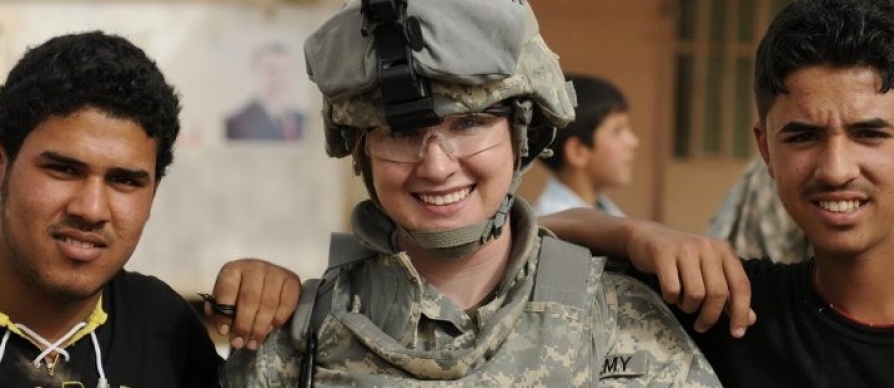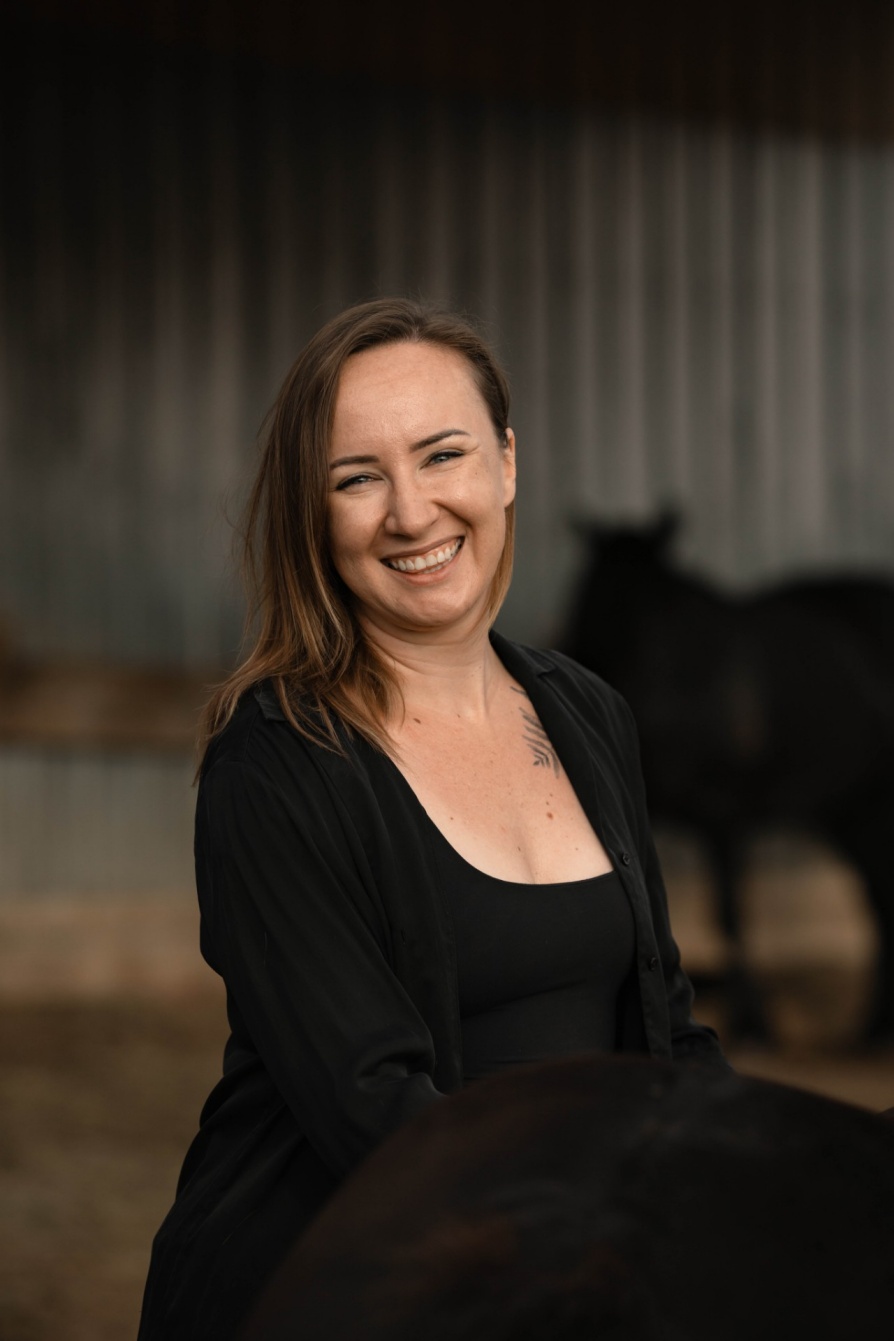
Taking off the uniform: GSE alum Emily Knitter’s mission to support veterans
BY DANIELLE LEGARE
When Emily Knitter, a recent PhD alumna, left the U.S. Army after five years of service and a deployment to Iraq, she thought she was simply stepping into the next phase of her life. What she hadn’t anticipated was the profound shift in identity that would come with leaving her uniform behind.

“I did really well in the military. I got promoted quickly. I enjoyed it,” Knitter said. “And then I got out, and suddenly, I was struggling. I didn’t know who I was. I got fired from a job as a waitress. I felt like I had lost my sense of purpose.”
Like many veterans, Knitter faced what she now calls military transition stress—the psychological and emotional challenges that arise when service members return to civilian life. She found that the existing support systems for veterans tended to focus on practical steps like writing résumés and preparing for job interviews. But no one had prepared her for the emotional weight of the transition.
“The adjustment isn’t just taking the uniform off and figuring out where you’re going to work. It’s a complete change and reassessment of your identity and who you are, and that’s something that doesn’t happen overnight.”
A former Army colleague encouraged her to seek therapy. According to Knitter, it changed everything.
“I went once, and then I started going weekly for the next year and a half. It started me on the path to getting my life back.”
Soon after, she realized she wanted to help other veterans navigate the transition she had once struggled through herself.
Finding a new purpose
Determined to make a difference, Knitter pursued a bachelor’s degree in psychology, followed by graduate studies at GSE, where she found the freedom to tailor her research to what mattered most to her: veterans’ experiences with transition and reintegration.
Her dissertation, “The Role of Mindful Self-Care in the Relationship between Psychological Inflexibility and Post-Military Reintegration among U.S. Veterans,” examined how psychological resilience and self-care practices influence veterans’ adjustment to civilian life. “For so long, veterans weren’t part of the conversation in research—we were the subjects, not the voices shaping the dialogue,” she said. “I wanted to change that.”
Throughout her time in the counseling psychology school psychology PhD program, faculty mentors—like Professor Catherine Cook-Cottone, Clinical Associate Professor Wendy Guyker and Clinical Associate Professor Michele Shanahan—played pivotal roles in her success.
“Dr. Cook-Cottone was an incredible advocate for me,” Knitter said.
Knitter also credits her academic cohort for getting her through the most challenging moments of the program. “No one gets through this program alone,” she said. “The support I had was everything.”
Advocacy, private practice and equine therapy
Today, Knitter works as a psychologist in private practice in Western New York, focusing on body-based therapy for complex trauma, self-discovery and life transitions for all adults, with a special emphasis on other veterans. She also serves as outreach coordinator for Worried About a Veteran (WAV)—a national organization focused on firearm safety, mental health and suicide prevention for veterans.
For Knitter, one of the biggest challenges in this work is breaking through cultural barriers. “Gun ownership is a huge part of many veterans’ identities. Conversations about safety and secure storage have to be approached in a way that doesn’t make veterans feel like they’re being told they’re broken,” she explained. “At WAV, we support families on every step of their journey, starting with conversations that foster trust and connection.”
To build on her clinical and advocacy work, Knitter is pursuing another passion: equine-assisted therapy. She credits her lifelong involvement with horses as a large piece of her own personal growth—and, now, she’s working toward certification to integrate them into her practice.
“Horses encourage you to be present in a rare way in our disconnected, fast-paced culture,” she said. “Because they are prey animals, they’re extremely attuned to our feelings and intentions, often when we may not even know ourselves. Because of this, they offer incredible insights we can then use to heal and grow.”
Photos: Bare Mountain Photography
Carrying a commitment forward
Although Knitter’s work continues to evolve, she remains committed to creating spaces where veterans feel seen, understood and supported.
She often thinks back to a moment from her doctoral internship at a VA hospital, where she developed and facilitated a therapy group based on her research. “One of the veterans told me, ‘This is the best group I’ve attended in 15 years.’ I drove home crying, but out of happiness,” she said.
“It’s everything I wish I had when I left the military. And now, I get to be someone who provides it.”
